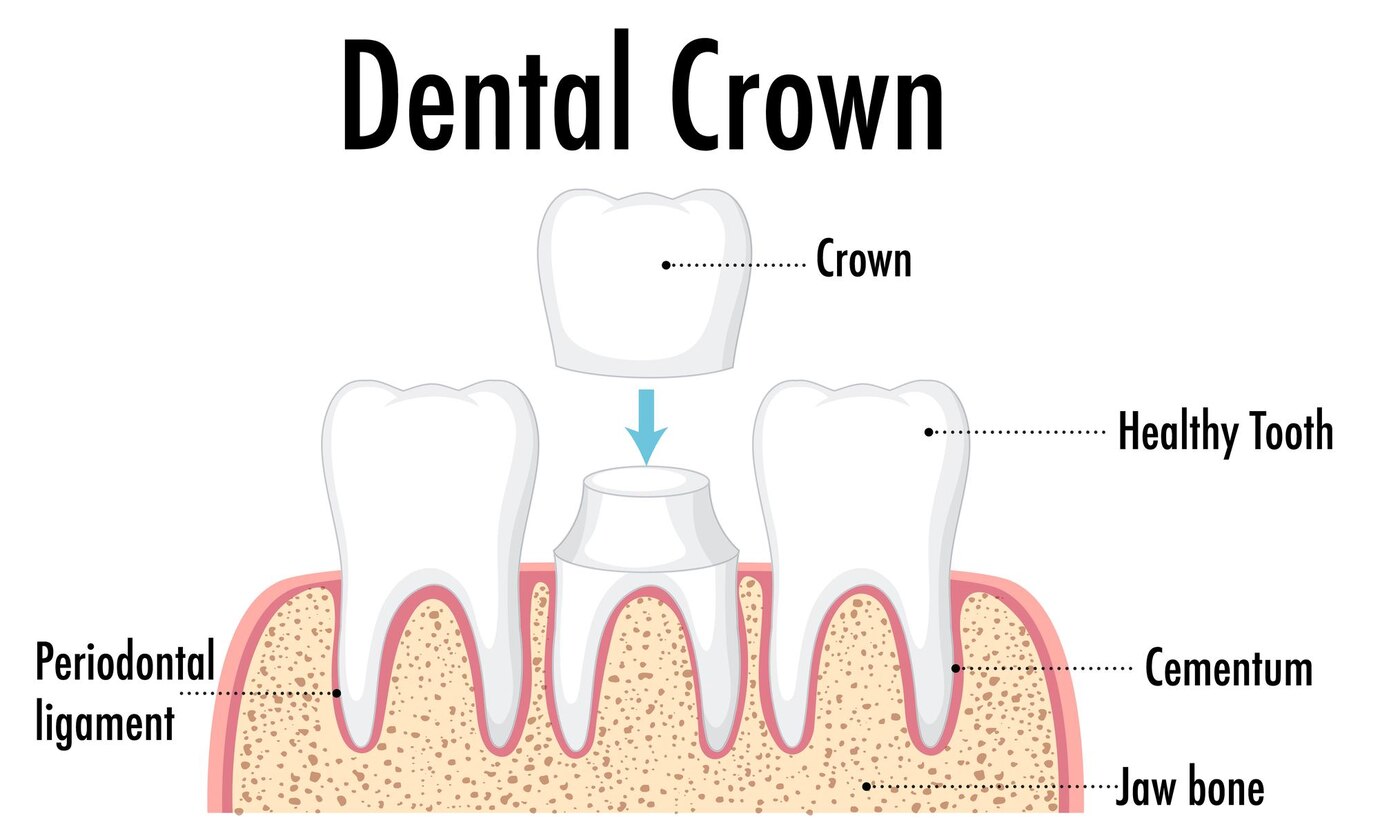A dental crown procedure is a common solution in dentistry to restore damaged, broken, or root canal-treated teeth. While many patients feel better after receiving a dental crown, some report experiencing tooth sensitivity following the procedure. This article discusses the causes of tooth sensitivity after getting a dental crown.
Changes in Temperature and Pressure
After a dental crown is placed, the tooth and surrounding tissues may respond differently to temperature and pressure changes, leading to sensitivity. Possible reasons include:
- Thermal Sensitivity: A new dental crown may make a tooth more sensitive to extreme temperatures, both hot and cold. This often happens due to thinner enamel layers or interactions with the crown material.
- Impact Sensitivity: Biting or chewing pressure can cause discomfort, especially if the crown is not properly fitted or if the underlying tooth remains highly sensitive.
Response to Crown Material
The type of material used for the dental crown can also influence sensitivity levels:
- Ceramic Crowns: These crowns can be harder and sometimes interact with surrounding dental tissues in ways that cause sensitivity.
- Metal or Composite Crowns: In some cases, metal materials may trigger allergic reactions or sensitivity in certain patients.
Tooth Preparation Procedure
The preparation process before placing a dental crown involves removing part of the existing tooth structure. This can lead to sensitivity due:
- Enamel Removal: A thin layer of enamel is shaved down to make space for the crown, potentially compromising the tooth’s natural protection and making it more vulnerable to external stimuli.
- Soft Tissue Irritation: The crown placement procedure may irritate the gums and surrounding soft tissues, leading to pain or sensitivity.
Inflammation or Infection
Inflammation or infection after the procedure can also contribute to sensitivity:
- Pulp Inflammation: If too much tooth structure is removed, it can irritate the pulp tissue inside the tooth, causing pain and increased sensitivity.
- Post-Operative Infection: In some cases, an infection can develop in the treated tooth area, leading to heightened sensitivity and discomfort.
Improper Crown Fit
If a dental crown is not properly fitted or is too high, it can cause sensitivity and discomfort:
- Bite Interference: If the crown is too high, an uneven bite can put excessive pressure on the tooth, leading to pain while biting or chewing.
- Lack of Proper Coverage: If the crown does not fully occupy the intended space, it may trigger sensitivity and discomfort under pressure.
Patient Adaptation
The body needs time to adjust to a newly placed crown:
- Adjustment Period: Sensitivity is often temporary. Over time, many patients find that sensitivity decreases as their mouth adjusts to the new crown.
- Dentist Recommendations: It is crucial for patients to follow their dentist’s post-procedure instructions, including using pain relief medication or additional treatments if needed.
***
Tooth sensitivity after a dental crown procedure is a common issue with various causes, from temperature and pressure changes to reactions to crown materials. If you experience prolonged sensitivity or pain after getting a crown, it is essential to consult your dentist for an evaluation and proper solution. Addressing sensitivity effectively can help maintain oral health and comfort in the long run. This effort aligns with Sustainable Development Goals (SDGs) Goal 3: Good Health and Well-being and Goal 4: Quality Education.
Author: Rizky B. Hendrawan | Photo: Freepik

